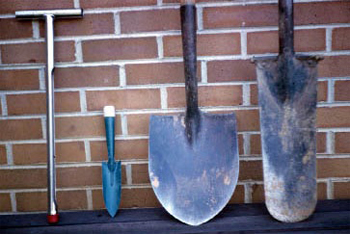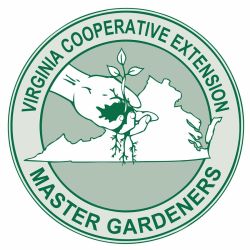Soil Testing
Why Should I Test My Soil?
A soil test is the only way to determine if your lawn and garden areas require phosphorus, potassium, calcium, magnesium, or if a pH adjustment is needed. A soil test from Virginia Tech provides information on the soil type, pH, and the levels of phosphorus, potassium, and 7 other essential nutrients in forms that are available to plants. It is impossilbe to tell how much phosphorus and calcium is needed without a soil test, and adding something you do not need can have long-term costly implications.
The purpose of homeowner soil testing is to help make wise decisions in purchasing and applying lime and fertilizer to optimize plantings in your lawn and garden areas. Without a test, applying fertilizer could be detrimental to the landscape and damage plants rather than nurture them. Unneeded materials may cause salt injury to plants, nutrient imbalances, and damage the environment. Testing soil is the best way to make your fertilizer purchases cost effective.
Recommendations of how much and what kind of lime and fertilizer should be applied for desired plantings are included with test results. The information you received can benefit you economically and help the environment.
Timing of soil tests
A soil test is needed only every 3 to 4 years.
Submit your sample in the fall before planting or tilling. This will allow any lime or sulfur recommendations to be added so that it can work over the winter to improve your soil pH. Any recommended fertilizers should be incorporated in spring.
Accuracy of soil tests
The accuracy of your test will be based on how your sample is taken. Be sure that the sample represents the area for your intended use. Do not take samples from unusual areas, such as near gravel roads, compost spots, brush piles, or under eaves.
Place samples in a clean pail or container to mix thoroughly. Transfer half a pint of this soil into the lab's sample container.
Send your sample(s) to the testing lab and wait for your results.
So Don’t Guess, Soil Test!
Contact your local Extension office for soil testing boxes and the procedure for using them. You will also find them available at numerous VCE-Chesapeake public events and classes offered by Chesapeake Master Gardeners, particularly in the fall.
Tips and Tricks

Tools Used in Soil Testing




Additional resources:
Soil sampling tips for the home gardener: http://pubs.ext.vt.edu/452/452-129/452-129.html
Soil sample information sheet for homeowners, pdf: http://pubs.ext.vt.edu/452/452-125/452-125.html


